Findings Staff Report | Feb. 25, 2021
UC is galvanizing its mission to serve the greater good—and making a major new investment toward our research mission with the new URC Faculty Scholars Research Award program.
We’re thrilled to announce the inaugural class of promising early career faculty, who are receiving $25,000 to take a transformative research idea and run with it over the next two years.
These awards build upon the rich legacy of the University Research Council, UC’s oldest and most prestigious internal funding program, which was established in 1971 to work with the Office of the Vice President for Research to support research at UC.
The first class includes eight winners, two in each of the following categories: Arts & Humanities, Behavioral & Social Sciences, Life Sciences and Physical Sciences & Engineering.
“Such faculty represent the bright future for UC,” says Vice President for Research Patrick Limbach. “This program seeks to bolster their efforts—early in their career—to help them identify solutions to the complex questions, problems and challenges facing society.”
The first class of scholars was selected based on the quality, novelty and impact of their individual research, scholarship and creative activities, along with a clear potential to make further, sustainable contributions to knowledge creation and improved societal outcomes.
The two-stage process first involved submitting a 3-page white paper and, for those who advanced to the finalist stage, a full written proposal, 10-minute oral pitch and a Q/A with panel of reviewers.
The program has been established as part of UC’s Research2030 strategic plan, a 10-year plan for UC research which will officially be announced during Research + Innovation Week Kick-Off March 29 from 4-6 p.m. The Faculty Scholars program was created to establish a premier program focused on outstanding early career faculty throughout the university.
This new program exemplifies a total university effort and furthers the Next Lives Here strategic plan.
“I want to not only thank all of our early career faculty who applied—but also those who helped co-create this program with the Office of Research, Greg Loving and Jennifer Wright-Berryman from the Faculty Senate,” Limbach says.
Everyone who enthusiastically supported the program the new scholars deserve applause and that includes the review panels, comprised of fellows from the Graduate School, the Research & Scholarship Committee of the Faculty Senate and Office of Research leadership, along with its four URC chairs.
UC research is all about disruptive ideas, applied solutions and real-world impacts, and each winning project had to describe their work using one of two impact frameworks: United Nations Sustainable Development Goals or Arts+Social Impact Explorer.
Now, meet our first class of Faculty Scholars:
Arts & Humanities
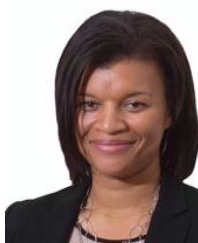
Assistant Professor Sunnie Rucker-Chang
College of Arts & Sciences, Department of German Studies
In her studies of Slavic and Eastern European cultures, Professor Rucker-Chang began to notice something the United States, Bulgaria, the Soviet Union and Yugoslavia had in common in the mid-20th century. Despite divergent ideologies, vocational education in these countries did not serve the needs of the individual but the nation and the political economy of the time. Her work will involve tracing and documenting this history. She believes she will find correlation between a lack of diverse educational options and economic stasis intergenerationally among certain minoritized groups. These lessons from history offer proof, Rucker-Chang says, of the continued importance of advancing quality education for minoritized groups. Rucker-Chang is the director of European Studies at UC and plans to write a number of scholarly articles from of this research, along with, ultimately, a co-authored monograph on the subject.
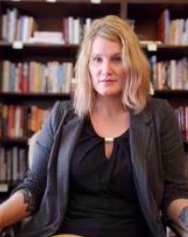
Assistant Professor Rebecca Wingo
College of Arts & Sciences, Department of History
As part of an assimilation program in 1922, the United States government photographically surveyed 244 houses on the Crow Tribe Reservation in Montana and the activities of the residents within. In partnership with descendants of the people in the surveys, Professor Wingo seeks to digitally repatriate the photographs back to the Crow Nation through a digital archive and a Descendants Workshop. The workshop will collaboratively explore options for future uses of these files, including a traveling exhibit, and foster conversations about ongoing housing disparities on the reservation. The culturally specific community engagement methods used will provide a useful template for other scholars seeking community partnerships with Indigenous groups. Wingo is the director of Public History at UC.
Behavioral & Social Sciences
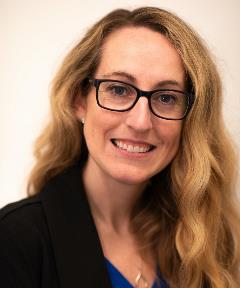
Assistant Professor Victoria McKenna
College of Allied Health Science, Department of Communication Sciences and Disorders
College of Engineering and Applied Sciences, Department of Biomedical Engineering
It can be difficult for any patient to take an active role in their own healthcare but technology can now help with that. UC’s McKenna wants to create a free voice monitoring app that collects comprehensive information regarding voice quality and vocal symptoms in those with chronic voice disorders. The app seeks to improve communication between the patient and care team to treat a patient’s voice disorder. Eventually, the data from the app will be used to investigate trends in successful voice treatment outcomes.
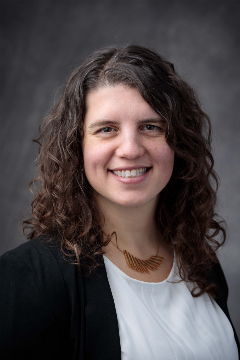
Assistant Professor Meghan Morris
Assistant Professor, College of Law/Affiliate Faculty, Department of Anthropology
In her project, titled “This Land is My Land: Property and the American Dream,” Professor Morris plans to examine the relationship between property and extremism in the United States. Morris will compare historical movements that have been grounded in the legal ideals and notions of life, liberty and property that define the American Dream. With this research, Morris hopes to reveal the roots of important cultural conflicts over property, and, in doing so, offer tools to determine more peaceful and just responses to such conflicts in the future.
Life Sciences
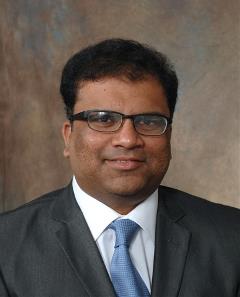
Assistant Professor Nalinikanth Kotagiri
College of Pharmacy, Department of Pharmaceutical Sciences
Nearly all of us use sunscreen as a protectant. But today’s sunscreens require frequent reapplication in large amounts and adequate coverage everywhere, which, let’s face it, not all of us are very good at. Today’s sunscreens can cause hormonal imbalance, too—even damage marine habitats. They don’t come close to addressing other environmental stressors on our skin. UC Professor Kotagiri plans to explore a novel technology for a more passive and long-lasting solution. He plans to “hijack the genes for production of natural sunscreen molecules in marine bacteria” to create a novel, first-in-class skin probiotic platform that could later be applied for the therapy and prevention of a multitude of dermatological disorders.
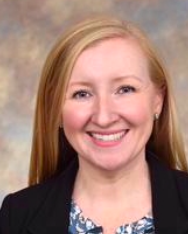
Assistant Professor Katherine Vest
College of Medicine; Molecular Genetics, Biochemistry and Microbiology
There are thousands of genes in each of our cells in our bodies and when a gene is expressed it determines what that cell can do. Research shows that our health and wellbeing is impacted heavily by tight control of these gene expressions and it also shows that the presence of copper has a role in an array of physiological processes, including wound healing and tumor growth. UC’s Vest wants to better understand how copper, an essential but toxic trace element, plays a part in gene expression. She plans to use a previously untapped approach to track the distribution of copper in cells to better understand how it modifies the proteins that bind to and control RNA to impact gene expression.
Physical Sciences & Engineering
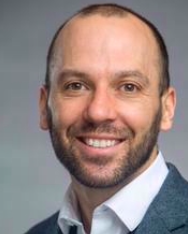
Assistant Professor Patrick Ray
College of Engineering and Applied Science, Department of Chemical and Environmental Engineering
Many parts of the world are experiencing extreme weather these days—the Ohio River basin included. The region has seen record precipitation in recent years, leading to flooding and other changes in hydrology. But what is the relationship between water level and water quality? What implications do higher water volumes have on human health and the health of the river and stream habitats? Professor Ray plans to gather all of the available data related to hydroclimatology and water quality on the Ohio River, organize it and fill in the gaps using machine learning and simulation modeling techniques. This new database can then explore never-before-answered questions about how floods and droughts impact water quality and help those who manage the river, perhaps becoming a framework for other river basins to understand their own hydrology-quality risk profile.
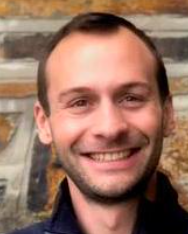
Assistant Professor Pietro Strobbia
College of Arts & Sciences, Department of Chemistry
How different would COVID-19 have spread, had the world had easy access to a device that could have diagnosed and monitored the sick where they lay? We’ll never know. But it’s not too late to build a point-of-need tool to hopefully contain future viral threats. That’s why Professor Strobbia applied for this award. The point-of-need device he plans to design will use surface-enhanced Raman scattering biosensors to provide sensitive and accurate diagnoses based on a DNA-machine amplification mechanism. Some big words that will hopefully amount to a better reaction time, next time.
The Faculty Scholar Award Program will return in the 2021-2022 academic year. Watch the OoR’s Funding Opportunities page for more information next fall.